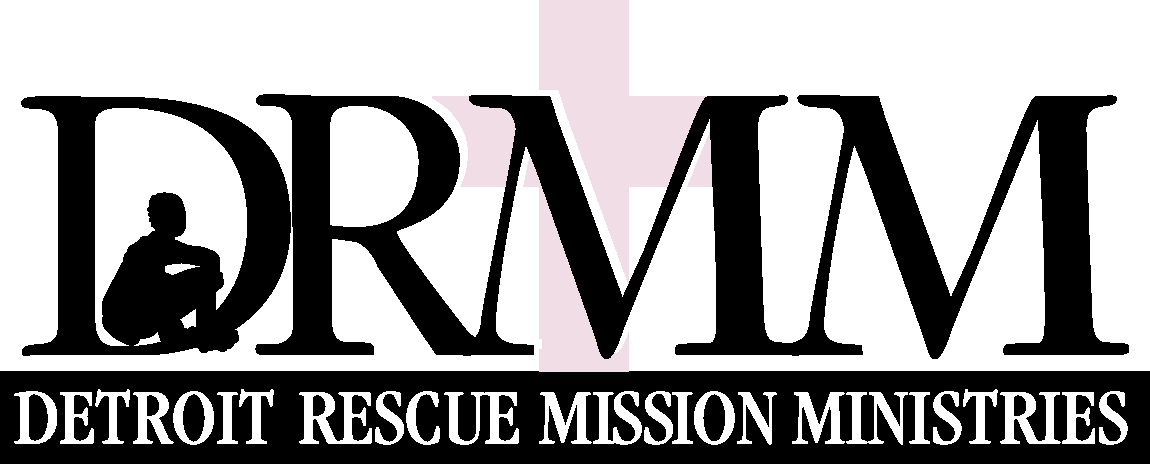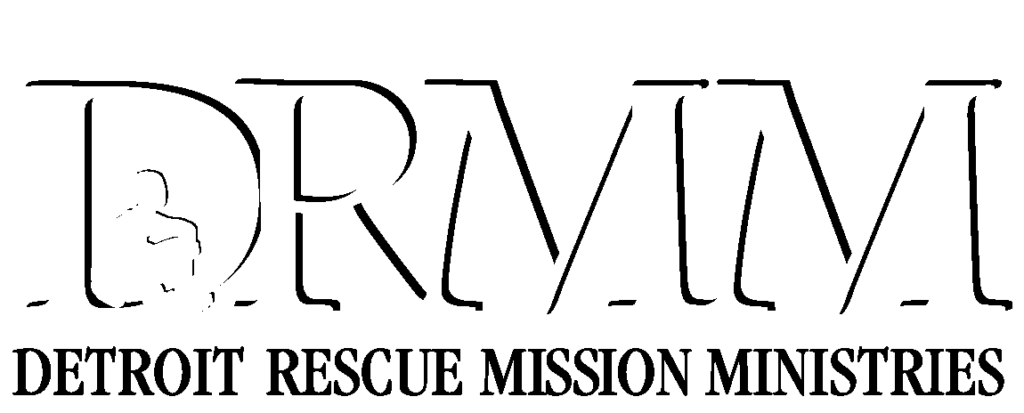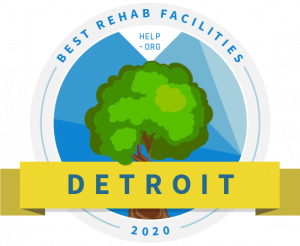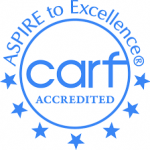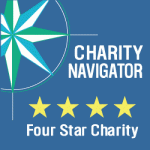Mission of helping the homeless has driven Chad Audi for 26 years
From Crain’s Detroit
DETROIT RESCUE MISSION MINISTRIES: Chad Audi, president and CEO of Detroit Rescue Mission Ministries, a Lebanon native, came to the U.S. in 1991, landing in Oklahoma City to attend college. He moved to Michigan after a couple of semesters and earned a master’s degree in corporate and international finance from Walsh College. It was the late ’90s, and Audi, 54, was offered a good-paying job at a Dearborn auto supplier. But in the end, he turned it down to make half as much working at Detroit Rescue Mission; 26 years later, he’s still at the nonprofit and wouldn’t do anything else. The conversation below has been edited for length and clarity.
You were offered a job at the former automotive supplier Standard Products right out of college, right? How did you wind up at Detroit Rescue Mission Ministries?
A friend of mine called me to come in to help with DRMM’s audits because my background is in finance. So I started helping them, and I found there were a lot of problems at that time. I started volunteering every day from like seven o’clock in the morning until around 10, 11 at night. I caught the attention of the president at that time, and he asked me if I wanted to work for him. And my first answer, naturally, was that he cannot afford me. He asked me to sit down and listen to one of the testimonials of one of the individuals who was graduating from the DRMM at that time. She was a special education teacher with a master’s degree. And then she was describing how her life took a downturn and she got introduced to drugs, and then how she went to many drug rehab places, but it was like a revolving door until she came to Detroit Rescue Mission. That day, she was celebrating the first time in 20 years of her addiction being sober for over a year. She actually broke my heart. I told Don (DeVos) I’d like to work for you, but knowing the circumstances, it’s going to be very hard. My offer with Standard was about $82,000. And I started with Detroit Rescue Mission, after a lot of negotiation, at $27,000 as director of financial analysis.
What made you choose the nonprofit path and lower pay?
This is because my dad also got involved. I wanted a minimum of $33,000 to cover my expenses. So my dad offered me $6,000 to close the gap in my salary. He thought that this is a good environment, and he believed, knowing me as his son, that I care for others and felt that there was an opportunity that I could help and grow the organization. He did not have to pay part of my salary (though), because the person who was heading up finance at that time, (who) was making $41,000 was diagnosed with cancer, and she passed away. So I slid into her position after being here three months. See, that’s how God works in mysterious ways. I keep joking to my dad that he should have given me the $6,000.
What was happening at DRMM at the time?
They were having payless days for the employees because they had too many expenses and not enough revenue. And there was not good management. They didn’t even have a financial policy and procedures in place. They were just acting in good faith as good people, but not (doing) basic, real basic financial application, according to all the rules and regulations. They hired staff for those grants, (and) when the grant ended, they did not transfer the staff to another grant. They just kept paying them even though they’re not working. To present a financial solvency plan took me about two years. We had to clean the slate and start over again, and that put us in a very good position. So we moved up from having at that time, about 18,000 donors, (to), within five years about 95,000 donors, 65,000 who were actual active donors (giving) at least twice a year. Right now our database is about 130,000, and I have about 85,000 active donors. When I first came in the organization (revenue) was $4.7 million. Today it is $23 million.
You have taken the organization into some new programmatic areas, right?
So the organization was known to do shelters. Our idea was (for) most people who come to our shelter we should find a real permanent solution to their situation and not to keep them in the shelter. So we applied for and we got transitional housing money and started moving people from the shelter to transitional housing, where we offered them case management, job training, job placement (and goal-setting) to help them get back on their feet. So naturally, we also needed to expand our inpatient treatment program and our outpatient programs (for) returning citizens, job training veterans’ services, dual diagnosis services — meaning people with mental health as well as substance abuse — and then a lot of youth programs. We take kids to our camp in Howell, and then for the kids who are with their mothers, while they’re going to treatment, we send them to school and we do prevention and intervention programs for them. Prior to COVID, we did a lot of basketball, aquatic teams for the youth and we’ll take them to track and we take them to compete on a national level. We also do educational services (and) entrepreneurial services. It was all in Detroit and then we expanded (with another shelter) to Highland Park. Then we moved to Roseville, to Mount Clemens, (and) recently in Wyandotte. Any place we think that there is need for help we go and help. We actually are right now the only food bank in Macomb County. So we provide food boxes to seniors and to people who are in need.
Are you seeing increased need in Macomb County?
Unfortunately, there is a lot of need in Macomb County. There is a new immigrant population moving to Macomb County, especially Mt. Clemens and the Clinton Township area. They’re not really very well established, so they need a lot of help. And then we have a growing number of senior population who will also need some help. We don’t know about the homeless status, but we think there are some. But we don’t know of shelters (that) are operating. We know that there are veterans who are in need in that area, and there’s not enough services. I think Macomb needs way more services than it’s provided. A lot of people are coming to us. We try to help as much as we can, but the need is there.
What’s next?
Right now, we think that there’s a big need on respite care all over the place. We’re still in initial talks with Siena Healthcare who wants to give us another (fifth) building in St. Clair Shores. They have closed their center there that used to be called St. Mary’s, and we are negotiating with them as we speak to see if we can open it as a respite care center and a daycare center for the seniors.
That’s a similar model to what you’re attempting to do in Livonia in another building donated by Sienna?
Yes. That will be an outpatient program for behavioral health and respite care for seniors so a family can drop off their loved one for 15 days if they want to take a break or a vacation. My approach has been we need to continue to have a fluid organization that we can change (with) what the community needs. We have to be there to provide services as long as we have the resources and the expertise. (But) I don’t do anything if I cannot sustain. I have to find the funding, the expertise to provide the program and the actual location. If I don’t have the three components, I would not go because there’s going to be a failure.
Ok, tell me about something you do for fun outside of work.
Well, you know, the truth is, this is something me and my wife were debating about because apparently, I’m not doing a lot. Last year, I worked 365 days of the year, literally, and I didn’t have time to do anything. But now I’m working on some fun. So the only fun I have right now is to look at the reports of my two older kids who are graduating, one with a 4.0 from Michigan, one with a 3.8. That’s the satisfaction that I see when I look at. That’s the fun right now.
So you need to find a hobby. Do you want people to send you ideas?
I’m trying! We live on a golf course but I don’t do golf. People are encouraging me to start going down. It’s just across (from) the house. I’ll tell you something that I’ve been doing for the last couple of months, and I think that’s a good start. I am an early riser. So like five o’clock I’m up. So I walk every morning and as I’m walking, I see the sun rising. So I take a picture of the sun every morning. One day there’s haze. One day it’s clear. We’ll see if I can stick with it.
Sherri Welch is a senior reporter for Crain’s Detroit Business covering nonprofits, philanthropy, higher education and arts and culture. Before joining Crain’s in 2003, she covered automotive suppliers and tire makers for Crain’s Rubber & Plastics News.
